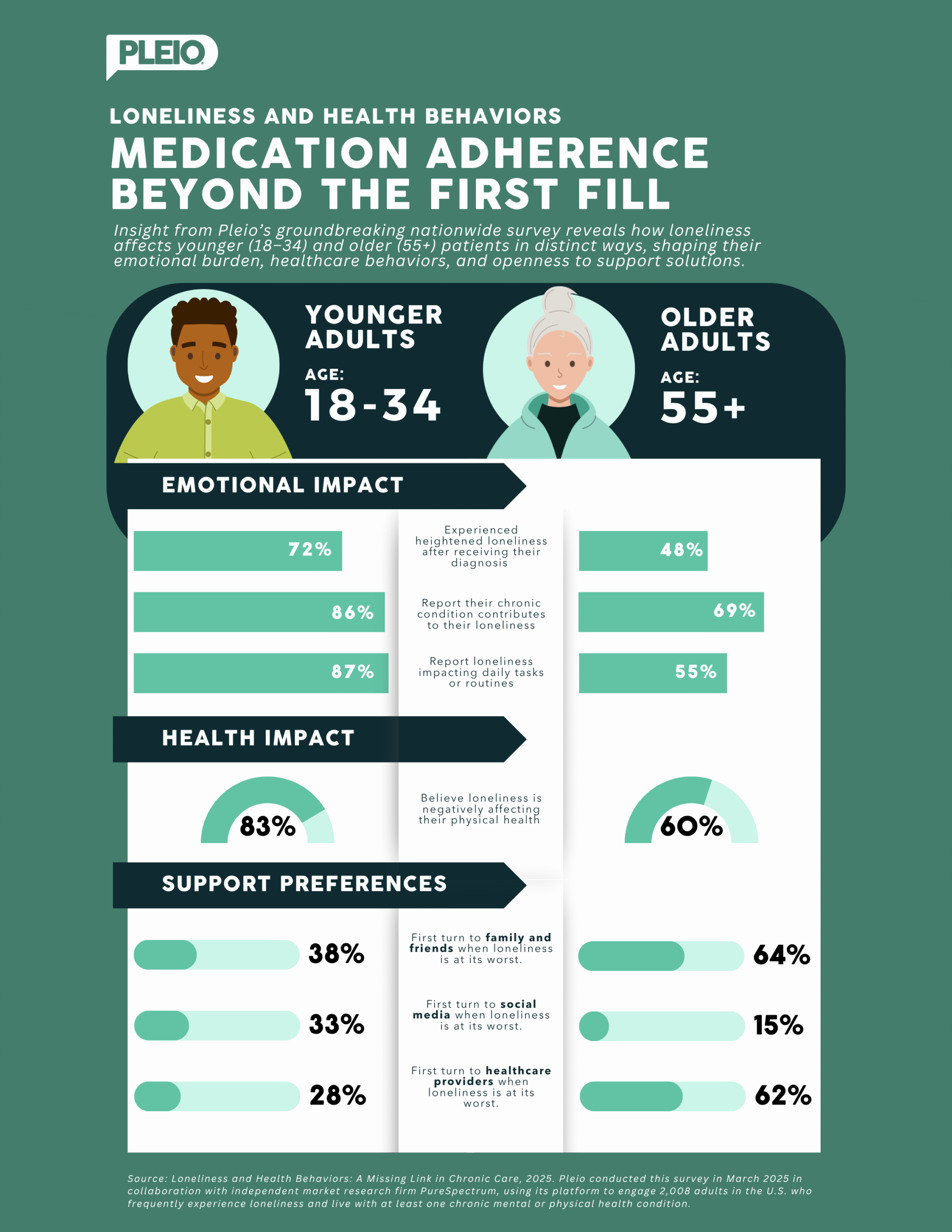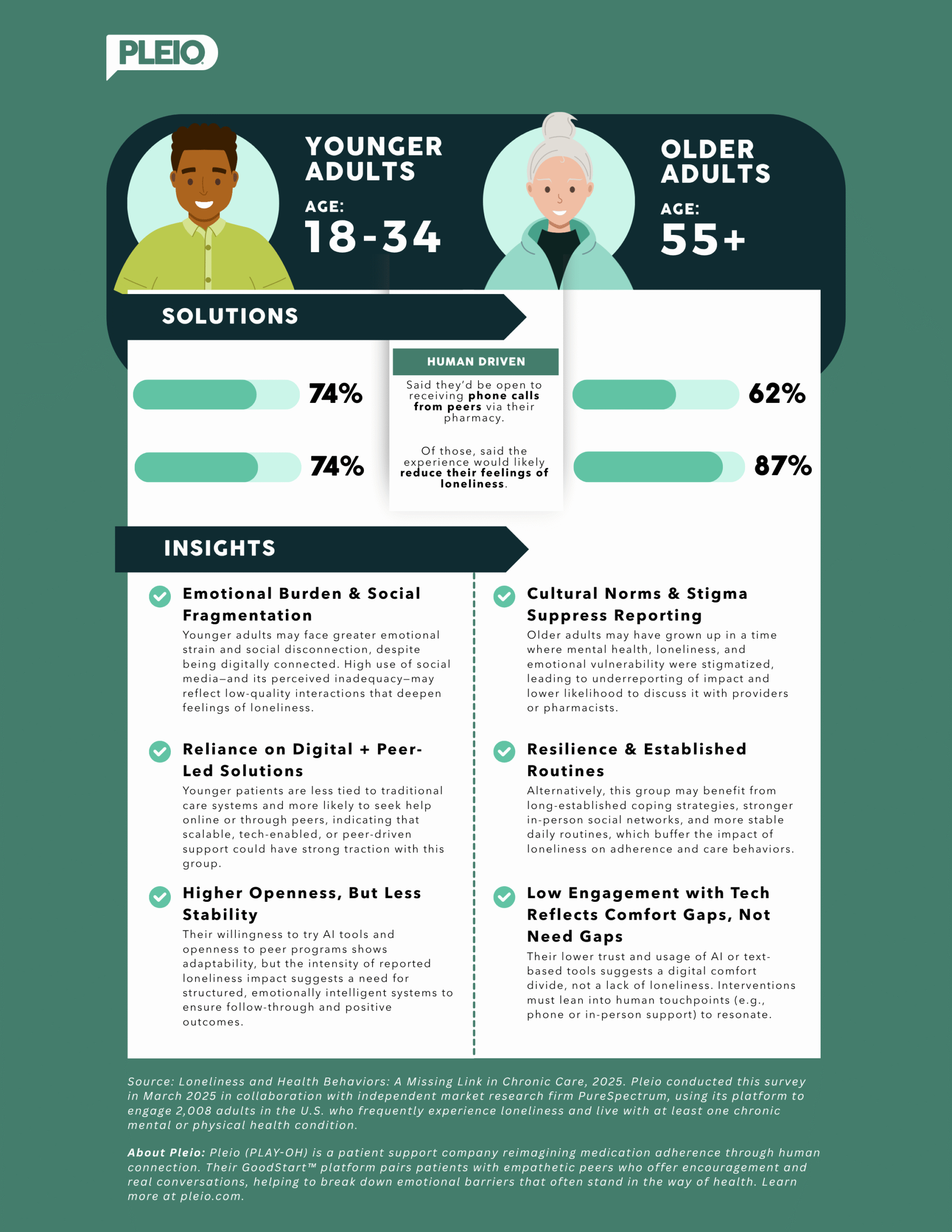Understanding Loneliness by Age
In a healthcare system increasingly shaped by automation and AI, it’s easy to forget one essential truth: people still want to feel seen, heard, and cared for. That’s the insight at the heart of Pleio’s latest nationwide survey, which explores how loneliness affects patients and what kinds of support truly resonate. In this blog post, we take it a step further, breaking down loneliness by age.
Younger and older adults experience loneliness differently. But beneath those differences lies a shared desire: meaningful, human-driven connection in their healthcare journey.
Generational Differences in the Experience of Loneliness
Loneliness doesn’t look the same at every stage of life. For younger adults (ages 18–34), loneliness often comes with high emotional intensity and a strong sense of social fragmentation, despite being constantly digitally connected. In contrast, older adults (55+) may experience loneliness more quietly, shaped by different cultural norms around emotional openness and mental health.
But when it comes to support, both groups are open to help, especially when it is human-driven.
Among younger adults (18–34):
- 74% said they’d be open to receiving a peer phone call from their pharmacy.
- Of those, ¾ said it would likely reduce their feelings of loneliness.
Among older adults (55+):
- 62% were open to a peer call.
- Of those, 87% said it would likely ease their loneliness.
Whatever your age, connection matters.
The Takeaway for Healthcare Leaders
In a time when digital tools dominate the conversation, this survey is a powerful reminder that connection cannot be automated. Patients, regardless of age, are asking for more than efficient care. They want human care. From the tech-savvy young adult navigating emotional isolation to the older patient quietly facing loneliness, understanding loneliness by age is key to designing meaningful support. People are signaling that empathy and conversation still matter.
It is human connection that truly moves people forward in their care journey. Programs like Pleio’s that are centered around offer a clear path to stronger adherence, better outcomes, and a healthcare experience that genuinely supports the whole person.
The future of care isn’t just digital. It’s personal.
Want the Full Picture?
Download Pleio’s full report, “Loneliness and Health Behaviors: A Missing Link in Chronic Care,” to uncover detailed findings and actionable insights to guide your patient engagement strategy.


